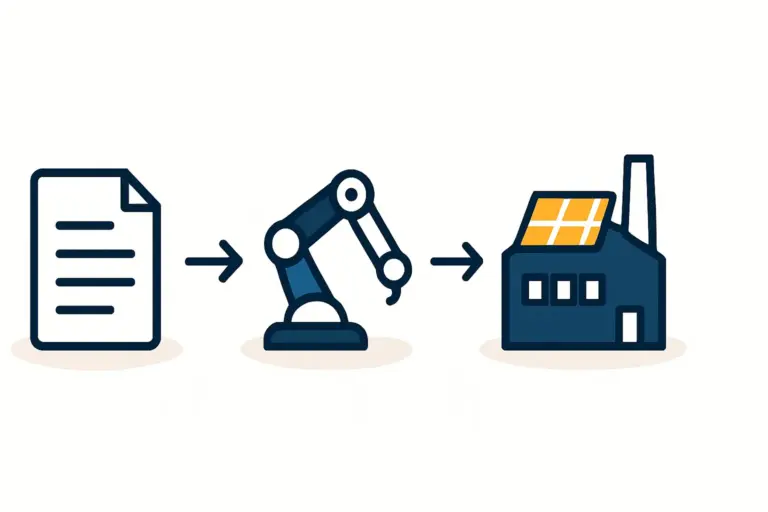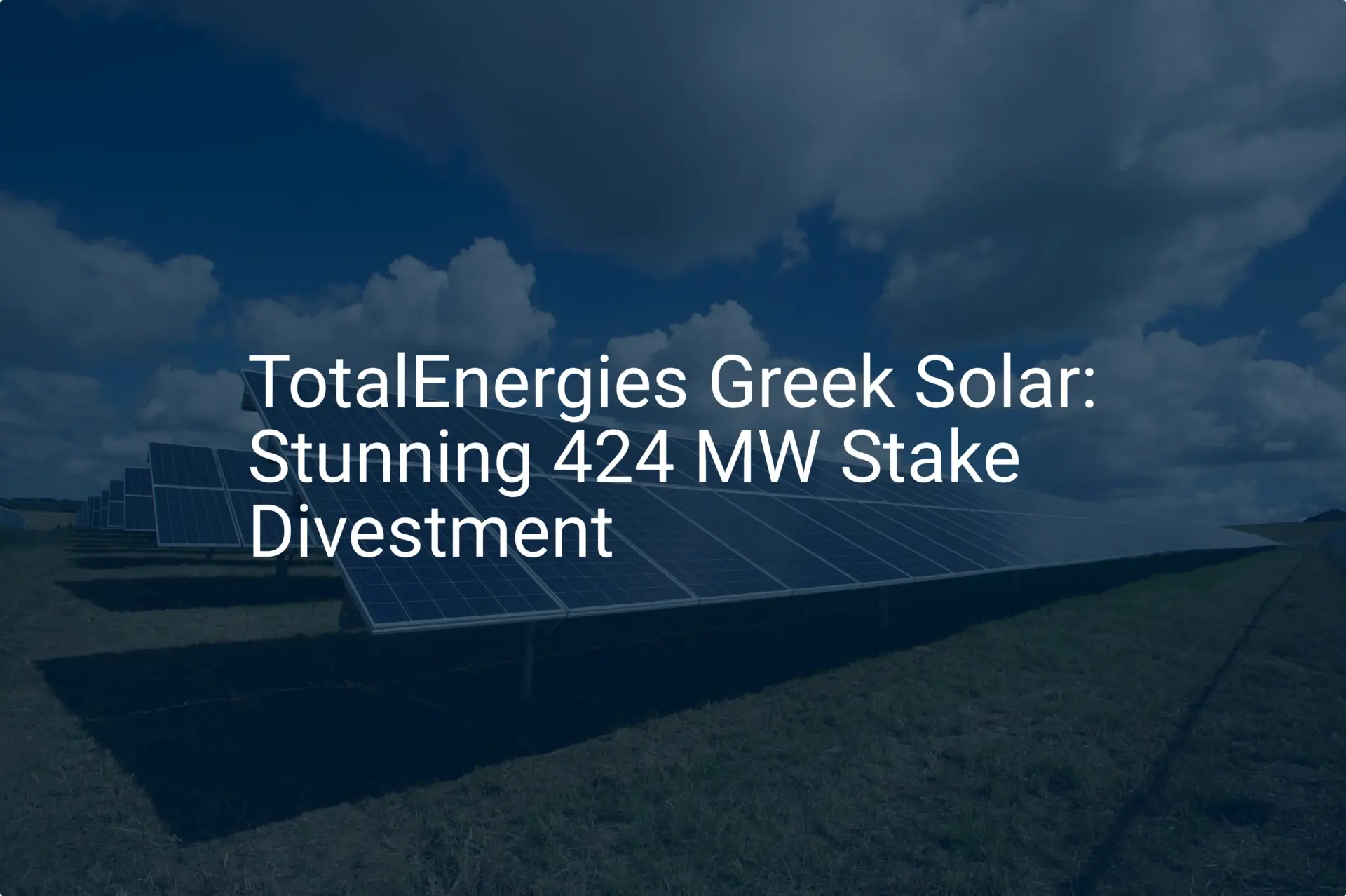While many new entrants to the solar industry focus on mass-producing standard residential modules, significant opportunities lie in specialized, high-value niche markets. For an investor considering solar manufacturing, Greece offers a unique combination of abundant solar resources, strategic geography, and two powerful, underserved sectors: agriculture and maritime shipping.
This article explores the business case for establishing a solar module manufacturing facility in Greece tailored to these industries, moving beyond a generic market analysis to show how local production can solve unique challenges and unlock substantial value.
The Favorable Landscape: Why Greece?
Before examining specific niche markets, it’s helpful to first understand the supportive macroeconomic environment in Greece. Several factors create a compelling foundation for a solar manufacturing venture.
-
Exceptional Solar Resources: Greece has one of Europe’s highest solar irradiation levels, ranging from 1,650 to 1,950 kWh/m² annually. This fundamental advantage ensures strong and consistent performance for any solar installation, driving long-term demand.
-
National Policy and EU Support: The Greek National Energy and Climate Plan (NECP) sets an ambitious target of 14.1 GW of installed photovoltaic capacity by 2030. As a major recipient of the EU’s Recovery and Resilience Facility (RRF), Greece has substantial funding allocated for green transition projects, creating a supportive financial environment for new ventures in the renewables sector.
-
Strategic Location: Positioned at the crossroads of Europe, Asia, and Africa, Greece serves as a logistical hub. A manufacturing base here is ideally positioned to serve the domestic market and export to neighboring regions in the Balkans and the Eastern Mediterranean.

These factors create fertile ground for investment. However, the most strategic approach may not be to compete with global mass producers, but to serve specialized local demand.
Niche Opportunity 1: Agrivoltaics (Agri-PV)
Agrivoltaics—the practice of co-locating solar power generation with agricultural activities—represents a transformative opportunity for Greece’s extensive agricultural sector. It addresses the dual challenges of land-use conflict and the need for sustainable energy.
The potential is immense. A study by the Aristotle University of Thessaloniki identified approximately 3.4 million hectares of land suitable for agrivoltaic installations. This land alone has the theoretical potential to host 3 TW of power generation capacity.
For a local module manufacturer, this market is not about producing standard panels, but about creating customized solutions that enhance, rather than hinder, agricultural output. This could include:
-
Semi-Transparent Modules: Panels that allow a specific percentage of sunlight to pass through, protecting crops like grapes or olives from excessive sun while still generating electricity.
-
Elevated Structures: Modules designed for mounting on tall structures that allow farm machinery to operate underneath.
-
Custom Dimensions: Panels with specific sizes and shapes that fit seamlessly between rows of crops or over greenhouses.
A local factory can work directly with agricultural engineers and large farm operators to design and produce modules that meet these precise requirements. This offers a level of customization and responsiveness that large, distant manufacturers struggle to match.
Niche Opportunity 2: The Maritime Sector
Greece is a global maritime superpower, controlling the world’s largest merchant fleet with over 5,500 ships. This industry is under intense pressure from the International Maritime Organization (IMO) to decarbonize and reduce emissions. While solar power cannot replace main propulsion engines, it can significantly reduce the fuel consumption of auxiliary systems.
On a large container ship or tanker, auxiliary engines run continuously to power navigation, lighting, refrigeration, and crew facilities. Supplementing this with solar power directly reduces fuel costs and improves environmental compliance.
Modules for maritime use require several special characteristics that standard residential panels cannot offer:
-
Durability and Vibration Resistance: Modules must withstand constant motion and the harsh vibrations of a ship’s engine.
-
Salt-Mist and Corrosion Resistance: The marine environment is highly corrosive, requiring specialized materials for frames, backsheets, and junction boxes.
-
Lightweight Design: Minimizing added weight is critical for any vessel.
-
Potential for Flexibility: In some applications, flexible or semi-flexible modules may be required to conform to the curved surfaces of a ship.
A Greek manufacturer, located near major ports like Piraeus, would be perfectly positioned to serve this captive market. The ability to consult with shipping companies, conduct on-site assessments, and deliver robust, certified marine-grade modules provides a significant competitive advantage.

The Strategic Advantage of Local Manufacturing
For both Agri-PV and maritime applications, the core argument for local production is specialization. An entrepreneur can build a facility that bypasses the high-volume, low-margin market for standard panels. Instead, the focus becomes creating high-value, engineered solutions for specific industries.
A standard solar panel production line can be configured with specific machinery and quality control stations to produce these specialized modules. This shifts the business model from mass production to technology-driven problem-solving. This approach requires a robust business plan that clearly identifies the target niche and outlines the technical requirements. While the initial investment might be comparable to a standard setup, the potential for higher margins and a more defensible market position is substantial.
Navigating Potential Challenges
Of course, any new business venture comes with challenges. Investors in Greece must be prepared to navigate administrative bureaucracy and potential grid congestion in certain regions. Competition from low-cost Asian imports also remains a persistent factor.
However, a niche-focused strategy inherently mitigates this competition. By producing specialized, high-quality modules that standard importers do not offer, a local manufacturer builds a moat around its business. Success depends on thorough planning, strong local partnerships, and a clear focus on technical excellence rather than price competition.
Frequently Asked Questions (FAQ)
What is the primary benefit of focusing on niche markets like Agri-PV?
The primary benefit is avoiding direct competition with large-scale global manufacturers. By developing specialized products for a defined local market, a new entrant can establish a defensible position based on quality, customization, and service, rather than competing solely on price.
Are specialized marine-grade modules significantly more difficult to manufacture?
The core manufacturing process is similar to that of standard modules. However, producing marine-grade panels requires careful selection of raw materials (e.g., corrosion-resistant frames, specialized encapsulants, and durable backsheets) and more rigorous quality control testing to ensure long-term reliability in harsh environments.
Do I need a deep technical background to start such a factory?
While technical understanding is beneficial, it is not a prerequisite. Many successful entrepreneurs in this field come from business or finance backgrounds. The key is to partner with experienced technical consultants and engineering firms, such as J.v.G. Technology, who provide the necessary expertise for line design, setup, and operations.
How does EU funding impact a new manufacturing project?
EU funds, particularly from the Recovery and Resilience Facility, can provide significant financial support through grants, subsidized loans, and other incentives for projects that align with green transition goals. A well-structured business plan that emphasizes local job creation and sustainable technology is more likely to qualify for such support.
Next Steps for Consideration
The Greek market offers a compelling case for entrepreneurs willing to look beyond mass production. By leveraging the country’s natural solar advantages and targeting the underserved needs of its dominant agricultural and maritime industries, a new solar module manufacturer can build a resilient and profitable enterprise.
The key is not to simply enter the solar market, but to solve a specific problem for a specific customer. For an investor with the right strategy, Greece provides the ideal conditions to do just that.







